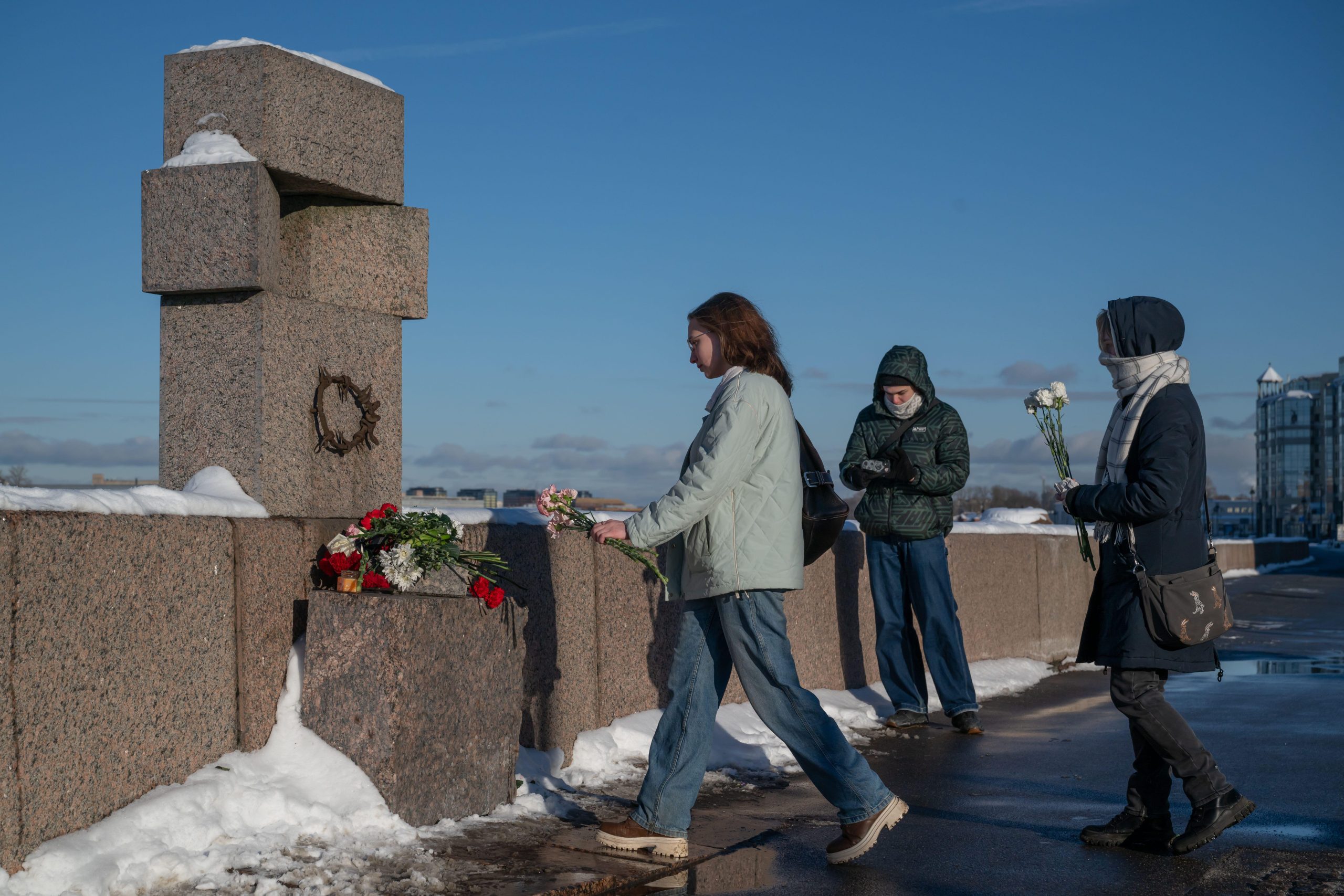Opposition activist Taisiya Osipova was sentenced to ten years on charges of drug trafficking on Friday. Rights activists allege that her arrest is a political move to silence both her and her husband. Both are members of The Other Russia opposition movement.
No journalists were present at the Smolensk city court when Ospiova was sentenced to ten years of liberty deprivation in a colony on 29 December. The Other Russia condemned her arrest in a statement said that the sentence would be fatal for Osipova, who has severe diabetes and pancreatitis as well as a five year old child.
Osipova and her husband Sergey Fomchenkov both support the founder of the Russian radical National Bolshevik Party (NBP) Eduard Limonov, which was banned in 2005 and subsequently revived under the name The Other Russia. Fomchenkov is a political council member for the organisation, and Osipova is an activist.
Taisiya Osipova first became well-known in 2003, when she smacked the Smolensk governor Victor Maslov with a bunch of carnations and shouted “You are getting fat at the expense of simple people. NBP says hello.” She was then given one year’s probation.
Osipova was initially arrested on drug charges in November 2010 after police found suspicious powder and marked bonds in her flat. Investigators accused her of selling and storing heroin, and a criminal case was then filed. Human rights activists expressed concern over the credibility of the sentence, because no fingerprints were analysed with the drugs allegedly found at Osipova’s flat, and three witnesses in the case were pro-Kremlin youth movement members, who are traditionally hostile to opposition organisations. This has raised suspicions that the drugs were planted in her flat to frame her, which is a common practise with corrupt law enforcement official.
Many organisations and activists have spoken out against Osipova’s arrest and called for her release, including The Other Russia, World Organization Against Torture, Russian rights activist organisations including Memorial and The Committee for Civil Rights, and public figures like musician Yury Shevchuk and Evgenia Chirikova, an activist for the Khimki forest. Osipova claims that operatives told her that they would release her if she testified against her husband; she refused.
A number of peaceful protests were held in Russia’s biggest cities this year, and many participants were detained by the police. Two biggest post-Soviet rallies in Moscow had a demand to release political prisoners immediately in their resolutions. But Osipova has yet to be released.
While many criminals are allowed to remain free, Osipova, “whose case the public considers faked-up”, remains in prison, Yury Shevchuk stated in his video address in Osipova’s support.
Along with antiextremism and defamation, drug law is often times used to silence opposition activists and outspoken critics of the Kremlin. One of the remarkable examples is that of the artist Artyom Loskutov who was arrested based on drug charges in 2009. The Novosibirsk-based artist Loskutov is famous for orchestrating “monstrations”—which are flash mobs with absurd slogans including “Who’s there?,” “Tanya, don’t cry,” and “System, why so nervous?” Loskutov said marijuana was dropped into his pocket by antiextremism police force operatives, as his fingerprints were not found on the pacakge with drugs, and no drug traces were found in his blood or on his hands. In a statement supporting Osipova, Loskutov said “drugs are used as an instrument for political repressions.”




